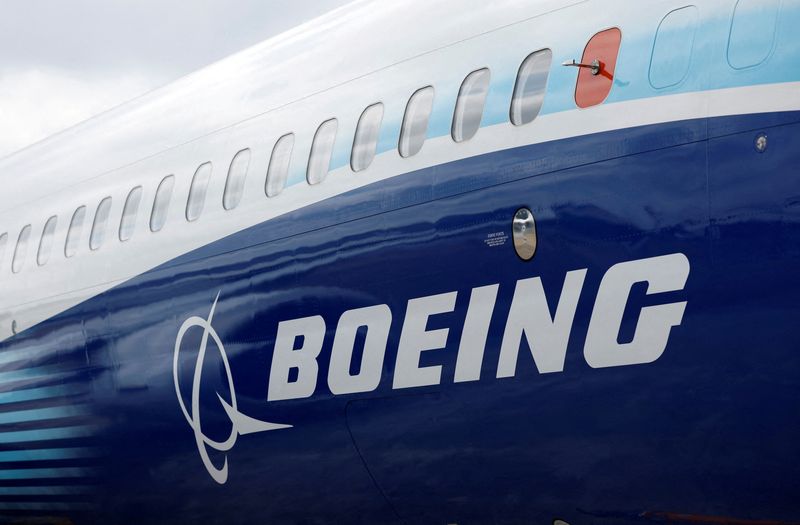Boeing strike threat looms as workers vote on contract
2024.09.12 06:56
By Joe Brock and Allison Lampert
SEATTLE (Reuters) – Boeing (NYSE:)’s U.S. West Coast factory workers will vote on a much-criticized new contract and a possible strike on Thursday, piling pressure on the planemaker as it wrestles with chronic production delays and mounting debt.
A potential strike starting on Friday would be a big early blow to new CEO Kelly Ortberg, who was brought on last month to restore faith in the planemaker after a door panel blew off a near-new 737 MAX jet in mid-air in January.
Starting from 5 a.m. PT (1200 GMT), roughly 30,000 workers who produce Boeing’s 737 MAX, 767 and 777 jets in the Seattle and Portland areas will vote on their first full contract in 16 years.
Polling will close at 6 p.m. PT and the result will be announced this evening, the International Association of Machinists and Aerospace Workers (IAM) said. If a strike is sanctioned, it could start at midnight.
The proposed deal includes a general wage increase of 25%, a $3,000 signing bonus and a pledge to build Boeing’s next commercial jet in the Seattle area, provided the program is launched within the four years of the contract.
Although the IAM leadership recommended its members accept the deal on Sunday, workers have responded angrily to the terms, with many arguing for the originally demanded 40% pay rise and lamenting the loss of an annual bonus.
Workers have protested in Boeing factories in the Seattle area that assemble Boeing’s MAX, 777 and 767 jets this week, with some banging pots and blowing horns, two employees said.
Following a meeting to discuss the contract at IAM’s office in Seattle on Wednesday, six Boeing employees told Reuters they would be voting to strike and were confident the bulk of union members would do the same.
“I’m ready to go on strike for as long as necessary to get everything that we deserve,” said Josh King, a 36-year-old quality inspector, dismissing Boeing leadership’s assertion that it had offered the best deal possible.
“Normally, a strike doesn’t bring a worse offer, it always brings a better offer.”
In a sign some workers are already preparing for picket lines, one union member left the meeting carrying a placard under her arm that read: “On Strike Against Boeing”.
ORTBERG’S PLEA
Boeing shares are down 36% this year on concerns over safety, production and a $60 billion debt burden. A strike would pile on the financial pain and add to delays in delivering planes to airlines already struggling with capacity shortages.
According to a note from TD Cowen, a 50-day strike could cost Boeing an estimated $3 billion to $3.5 billion of cash flow. The Boeing workers’ last strike in 2008 shuttered plants for 52 days and hit revenue by an estimated $100 million per day.
Ortberg sent a letter to workers on Wednesday, urging them to sign the deal for the good of the company.
“A strike would put our shared recovery in jeopardy, further eroding trust with our customers and hurting our ability to determine our future together,” the letter said.
The labor talks are a key test for Ortberg, who met with the union’s main negotiator after arriving in August with a pledge to improve labor relations and safety and ramp up production of Boeing’s best-selling 737 MAX passenger jet.
Ortberg and Boeing Commercial Airplanes boss Stephanie Pope hit the floor at the company’s jet assembly plants in Everett and Renton this week to talk with workers about the proposed deal, a source said.
Boeing machine repair mechanic Harold Wilson said he had mixed emotions about the contract and wanted to see better pensions and higher wages for younger workers.

“Standing on the outside I don’t see the contract going through. I don’t think we’ll be here on Friday,” Wilson said.
“I think Boeing will be left struggling again.”








